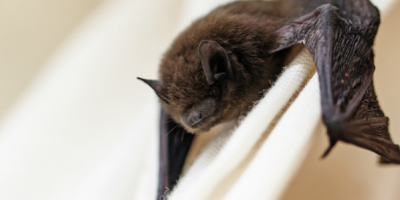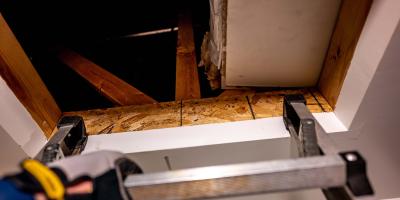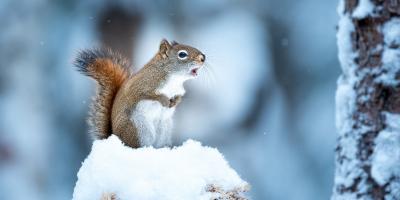"Massachusetts Homeowners ask ""What are those scratching noises at night?"""
It happens to every New England homeowner at some point. You are lying there in bed, just about to fall asleep and you begin to hear feint sounds in the ceiling above your head. The noise happens in bursts: scratch, scratch, scratch, scratch……… tap, tap, tap……….scratch, scratch, scratch, scratch.
“What is that?” says your partner. You groan because you know what it is. It’s one of two creatures… a mouse or a flying squirrel. Every year in New England our homes are challenged by House Mice (Mus Musculus), White Footed Mice (Peromyscus Leucopus) and Northern Flying Squirrels (Glaucomys sabrinus).
These types of mice and squirrels are primarily nocturnal creatures which is why you only seem to notice them at night. Mice can roam throughout a structure but are most likely going to stay in safe, quiet areas such as the attic, wall voids and basements. They will follow plumbing and electrical chases up into kitchen cabinets and other areas where food is attainable and risk to the mouse is low. They will also forage outdoors on a routine basis if there is an abundance of birdseed, acorns, maple seeds or any other common food source within a safe distance.
Flying squirrels primarily stick to the attic spaces and come and go through openings around dormers, roof vents, flashing, soffit returns and other common construction gaps. They like to be up high so they can run and jump off the roof and glide toward their foraging areas. They eat tree fungus and also gather tree nuts and seeds.
Mice and Flying Squirrels are not creatures that you want to turn a blind eye to when they get into your home. Their feces and urine is destructive and creates stains on interior ceilings. There are also diseases such as salmonella, histoplasmosis and hantivirus associated with them. Insulation, various construction materials and electrical wires and components can also be destroyed by these creatures. In suitable environments, their populations will grow quickly. So it is well advised to implement a control program anytime evidence of their presence is discovered.



